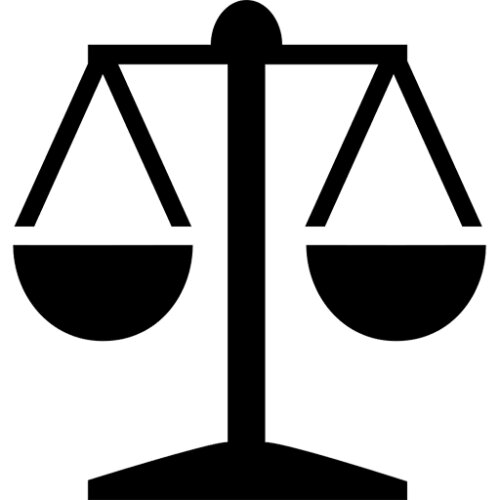Best International Lawyers in Nice
Share your needs with us, get contacted by law firms.
Free. Takes 2 min.
List of the best lawyers in Nice, France
About International Law in Nice, France
International law in Nice, France, primarily deals with legal relations and regulations that pertain to entities beyond national borders, such as foreign individuals, businesses, and governments. Nice, due to its geographical location and vibrant economy, often sees a significant amount of international business transactions, expatriate communities, and diplomatic activities, making it a thriving hub for international legal matters.
Why You May Need a Lawyer
Individuals and businesses may require legal assistance for various reasons, including:
- Immigration Issues: Navigating visas, residency permits, and citizenship applications can be complex and often requires professional guidance.
- Cross-Border Transactions: International businesses might need legal help ensuring compliance with both French and foreign regulations.
- Dispute Resolution: Resolving disputes that involve foreign parties may necessitate arbitration or litigation across different legal systems.
- Contract Drafting and Review: Ensuring that contracts are legally valid and enforceable in multiple jurisdictions requires expert legal knowledge.
- Taxation: International taxation laws can be intricate, and firms or individuals may need assistance in understanding their tax obligations.
- Intellectual Property Rights: Protecting intellectual property across borders involves navigating various international treaties and local laws.
Local Laws Overview
Understanding the key aspects of local laws in Nice is essential for navigating international legal matters:
- French Civil Law System: France operates under a civil law system which is codified rather than based on case law.
- EU Regulations: As a member of the European Union, many regulations in France are aligned with EU directives and regulations, which influence areas such as trade, competition, and immigration.
- Immigration Law: Entry, stay, and work regulations are strictly governed, and specific provisions apply for EU and non-EU nationals.
- Business Law: Setting up a business in France involves complying with French commercial code and may require understanding bilateral treaties that affect trade relations.
- Dispute Resolution Mechanisms: France respects various international frameworks for dispute resolution, including arbitration centers and conventions.
Frequently Asked Questions
1. What is international law?
International law governs the relations and interactions between countries and other international entities, covering areas such as treaties, international trade, human rights, and global security.
2. How can I find a good international lawyer in Nice?
You can consult local bar associations, seek recommendations from peers, or research law firms that specialize in international law with a presence in Nice.
3. What documents do I need for applying for a French visa?
Common documents include a valid passport, completed visa application form, proof of sufficient funds, travel insurance, accommodation details, and a return travel ticket.
4. How does France handle international business disputes?
France has a well-established judiciary and often utilizes arbitration or mediation for international business disputes. Many international contracts specify arbitration under rules such as those of the ICC (International Chamber of Commerce).
5. Are there any common pitfalls in international contract law?
Common issues include inadequate jurisdiction clauses, misunderstandings about applicable law, and insufficient clarity on dispute resolution mechanisms.
6. What is the process for setting up a business in France?
Setting up a business typically involves registering a company with the French Commercial Court, obtaining necessary permits, and ensuring compliance with local employment and tax regulations.
7. What are the tax implications for expatriates in France?
Expatriates may be subject to French income tax, social security contributions, and possibly double taxation treaties that France has with other countries to avoid double taxation.
8. How do I protect my intellectual property internationally?
Protection involves registering your intellectual property in each jurisdiction where protection is sought, often leveraging international treaties like the Madrid Protocol for trademarks or the Patent Cooperation Treaty (PCT).
9. Can I work in France with a tourist visa?
No, a tourist visa does not permit employment. You need a specific work visa or permit to legally work in France.
10. What should I do if I face legal issues while living or doing business in Nice?
Seek prompt legal advice from a qualified international lawyer who can navigate the complex landscape of French and international laws relevant to your situation.
Additional Resources
Here are some organizations and resources that might be helpful:
- Prefecture des Alpes-Maritimes: Local government office for administrative services including immigration and business registration.
- French Bar Association (Ordre des Avocats): Represents lawyers in France and can provide recommendations for international law specialists.
- International Chamber of Commerce (ICC): Provides arbitration and mediation services for international disputes.
- EU Immigration Portal: Offers comprehensive information on immigration policies and procedures for EU countries.
- World Intellectual Property Organization (WIPO): For intellectual property rights protection and international treaties.
Next Steps
If you need legal assistance in international matters, consider the following steps:
- Identify Your Needs: Clearly define the legal issue you are facing to help find the appropriate specialist.
- Research Legal Professionals: Look for lawyers or law firms in Nice with expertise in international law.
- Schedule Consultations: Many law firms offer initial consultations to discuss your case and outline possible solutions.
- Prepare Documentation: Gather all relevant documents and information that pertains to your legal issue.
- Understand Costs: Clarify the legal fees and any other associated costs upfront to avoid surprises.
- Follow Legal Advice: Adhere to the guidance provided by your lawyer to efficiently navigate through your legal matters.
By following these steps and leveraging available resources, you can effectively address your international legal concerns in Nice, France.
Lawzana helps you find the best lawyers and law firms in Nice through a curated and pre-screened list of qualified legal professionals. Our platform offers rankings and detailed profiles of attorneys and law firms, allowing you to compare based on practice areas, including International, experience, and client feedback.
Each profile includes a description of the firm's areas of practice, client reviews, team members and partners, year of establishment, spoken languages, office locations, contact information, social media presence, and any published articles or resources. Most firms on our platform speak English and are experienced in both local and international legal matters.
Get a quote from top-rated law firms in Nice, France — quickly, securely, and without unnecessary hassle.
Disclaimer:
The information provided on this page is for general informational purposes only and does not constitute legal advice. While we strive to ensure the accuracy and relevance of the content, legal information may change over time, and interpretations of the law can vary. You should always consult with a qualified legal professional for advice specific to your situation.
We disclaim all liability for actions taken or not taken based on the content of this page. If you believe any information is incorrect or outdated, please contact us, and we will review and update it where appropriate.













